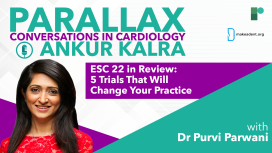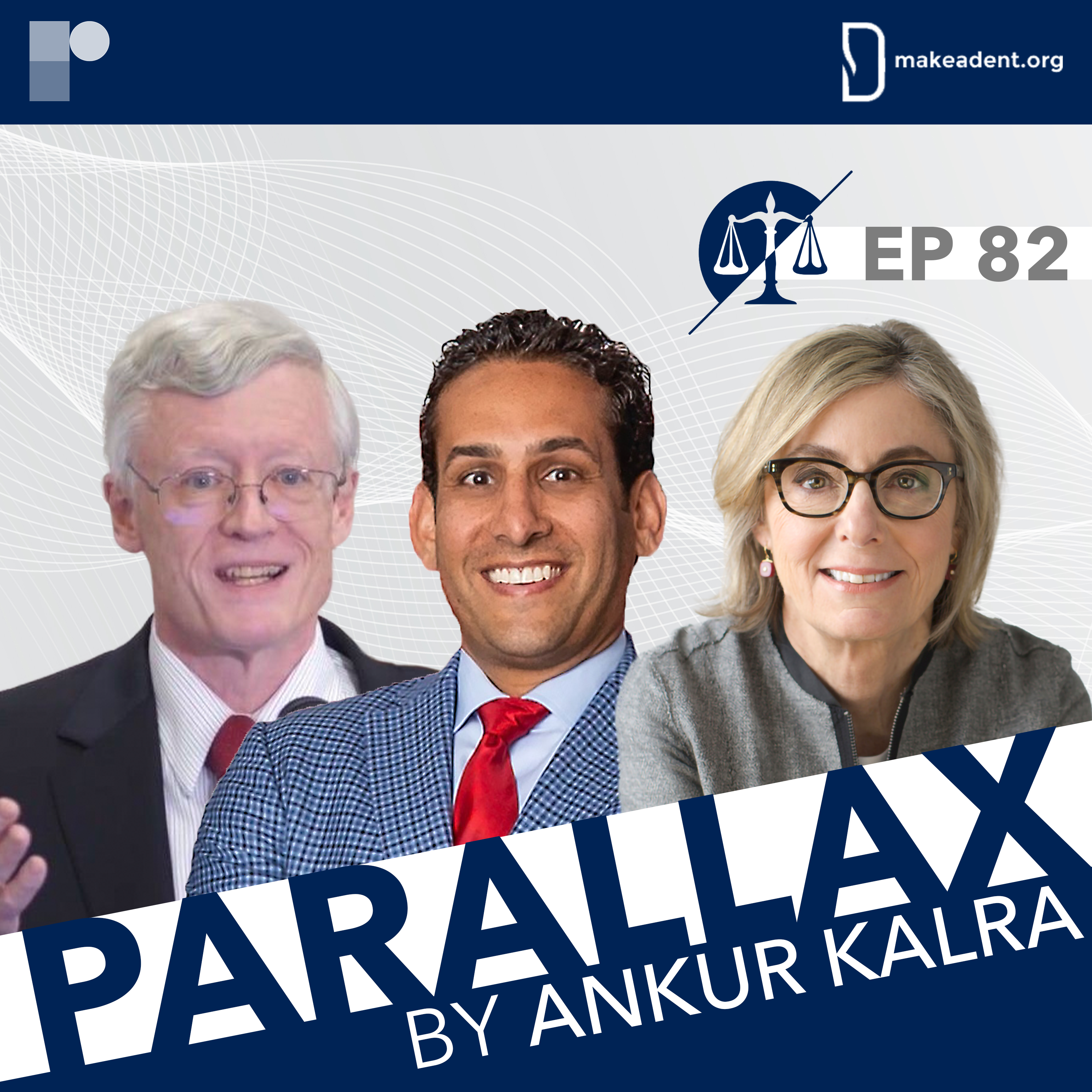
“Sham peer review or malicious peer review is defined as the abuse of a medical peer review process to attack a doctor for personal or other non-medical reasons.”
“Most doctors — warns Dr Kaki — do not understand that ultimately your privileges are not dictated by your colleagues through a fair process, but hospital administration controls our destiny”. In 2018, Dr Kaki was subject to a campaign of retaliation that set out to revoke the well-respected cardiologist’s privileges. Today, Dr Kaki is Director of Mechanical Circulatory Support at Ascension and Clinical Associate Professor at Wayne State University School of Medicine.
In this week’s Parallax Dr Kalra’s guests are the team that fought for justice in Dr Kaki’s case: Dr Lawrence R. Huntoon, Editor-in-Chief of the Journal of the Association of American Physicians and Surgeons and Deborah Gordon, employment attorney.
Dr Kaki walks us through his Kafkaesque experience and the knowledge he acquired during his battle with his former hospital. We get insight into the stages of a peer review process and the role of key stakeholders. Dr Huntoon, expert in this field, helps us put Dr Kaki’s experience in context and talks about the prevalence of sham peer reviews through shocking cases. Ms Gordon supports the discussions with practical tips and insights on the role of an attorney. Join Ankur and his guests for a must listen show on your rights as a physician.
What do you need to know about the hospital peer review process and your rights? What can you do if targeted? What is Dr Kaki’s advice to physicians?
Resource: https://shmpublications.onlinelibrary.wiley.com/doi/10.1002/jhm.12903
Stay tuned for Part 2 of Parallax’s Medico-Legal series with Dr Kalra and Dr Huntoon.
Questions and comments can be sent to “podcast@radcliffe-group.com” and may be answered by Ankur in the next episode.
Guests: @DrAmirKaki, Dr Lawrence R Huntoon and Deborah Gordon host: @AnkurKalraMD and produced by: @RadcliffeCARDIO.

What do you need to know about hospital investigations? What is the difference between OPPE and FPPE? How can you get educated on hospital bylaws and processes?
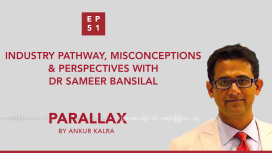
Dr. Bansilal was an Assistant Professor of Medicine at the Icahn School of Medicine at Mount Sinai when he decided to seek an alternative pathway to make an impact on patients’ lives.
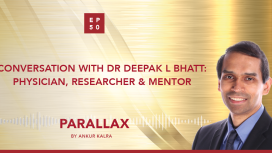
In the 50th episode of Parallax, Dr. Ankur Kalra’s guest is Dr. Deepak L. Bhatt leading physician, researcher, lecturer, and educator who has authored or co-authored over 1650 publications and was recipient of the ACC’s Distinguished Mentor Award in 2018 and AHA’s Distinguished Scientist Award in 2019.
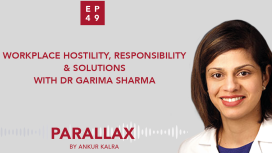
The American College of Cardiology surveyed cardiologists across the globe to have a more detailed understanding on the impact of hostility, discrimination, and harassment in the workplace. Of almost 6000 cardiologists who took part in the survey 44% reported hostile work environment.
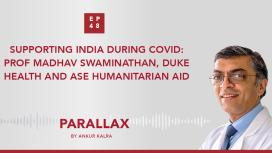
In this week's latest podcast episode, host, Ankur Kalra, MD, meets guest Prof Madhav Swaminathan (Duke University Health System, NC, US) to discuss how he has orchestrated a major humanitarian effort, in association with Duke University Health and The American Society of Echocardiography, to supply ventilation equipment and PPE to hospitals and NGOs during the current COVID-19 crisis in New Delhi, India.
Hear them discuss the challenges and learnings associated with the supply chain, inventory, logistics and cost to deliver this humanitarian effort; which most recently resulted in $140,000 of life-changing equipment being delivered to four key hospitals in New Delhi. A most inspirational episode.
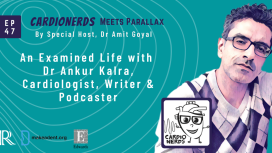
In this candid and spiritual conversation Amit and Ankur take a journey through former episodes of Parallax and Ankur’s writings to explore what it takes to strive for a deeper knowledge of ourselves; or, as Ankur puts it, dharma, the inherent order of reality.

Parallax’s guest this week is Dr Eric David Adler, Medical director of heart transplant and mechanical circulatory support at UC San Diego Health.

How did Dr Gragossian receive her diagnosis? How does she feel about her new reality? What drives her? What is her message to our listeners?

Just after 9/11, Heval, the 18-year-old Syrian Kurdish refugee found a job as a dishwasher. At this point, he was the sole provider of his family. The pressure that comes from being poor did not leave him for many years. Today, he is firm believer in giving back to underserved communities by spreading awareness within the medical community. As he says, well-meaning people of privilege are sometimes afraid to act. What we need is more people to bridge the gap and find ways to help each other.

What drives Dr Nishtha Sodhi? What were the formative moments of Dr Sodhi’s career? What are the new frontiers of cardiology?

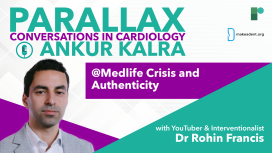
Rohin shares an advice that he received at the beginning of his career: “If you can deal with an average day, the exciting day will take care of itself.”
Ankur asks Rohin about Medlife Crisis and the work that goes into producing a show followed by 500K people. Rohin reiterates his passion for research and science communication. Ankur and Rohin discuss what it means to be yourself on social media and what is Rohin’s advice to our early-career listeners.
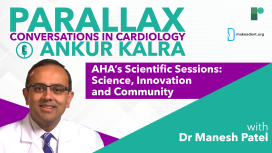
In this information-packed episode, Dr Patel takes us behind the scenes and talks about the work that goes into the curation of the programme and the considerations that shape the event. Dr Kalra asks Dr Patel about his highlights over the years and the movement and changes that he observed as vice chair and chair of the event. Dr Patel elaborates on the key late-breaking science trials in 2022. Dr Kalra and Dr Patel discuss the grading system of the award applications and share some useful information with our listeners.
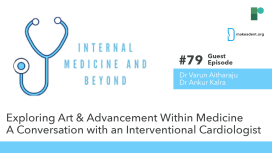
Exploring Art & Advancement Within Medicine - A Conversation with an Interventional Cardiologist.
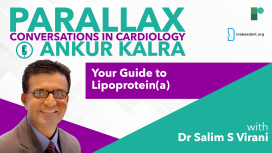
Dr. Ankur Kalra invites Dr Salim S Virani to help simplify the concept of Lp(a) with answering key questions about its measurement and its place in practice and prevention.
